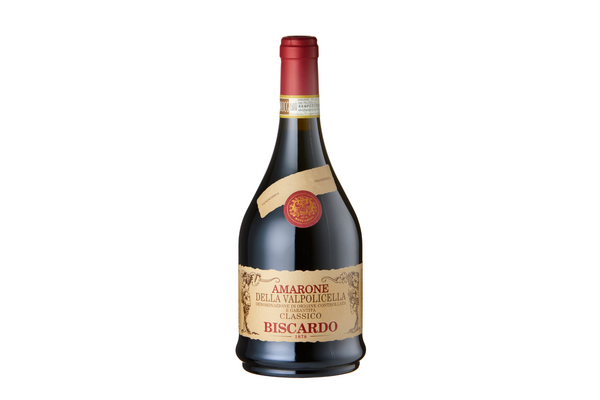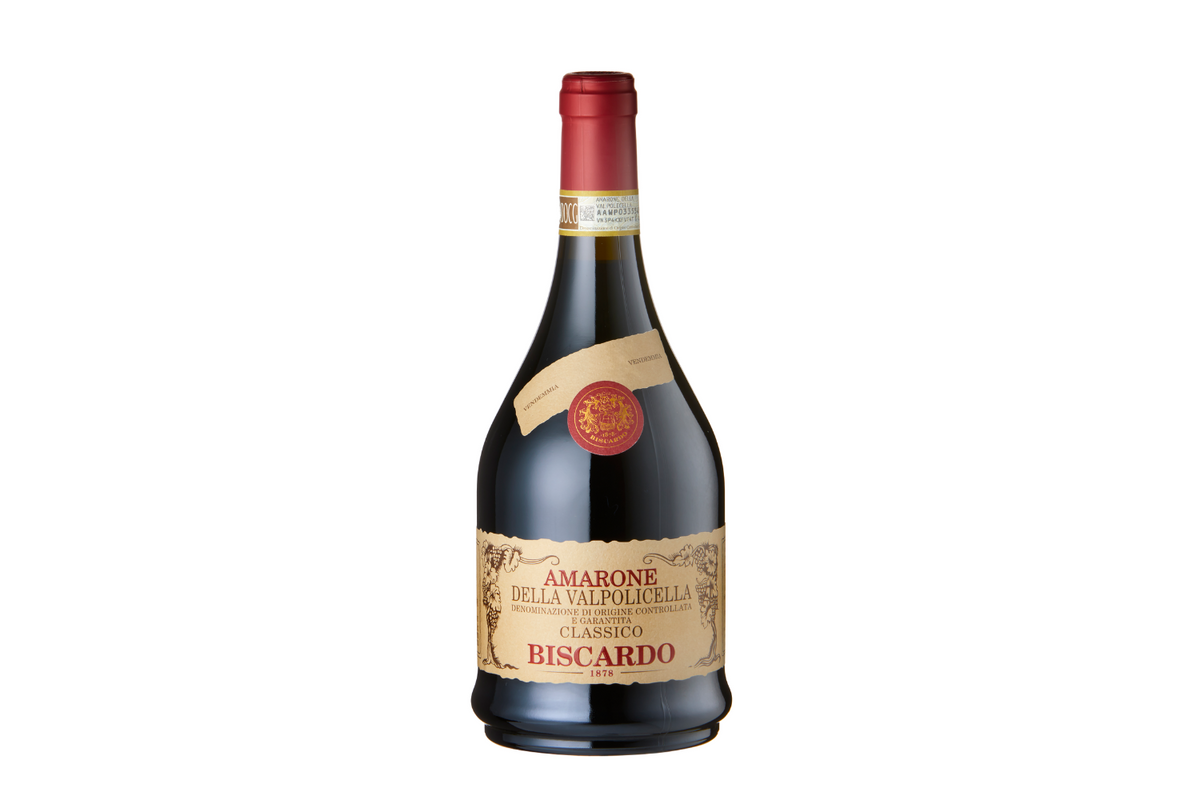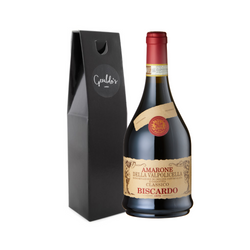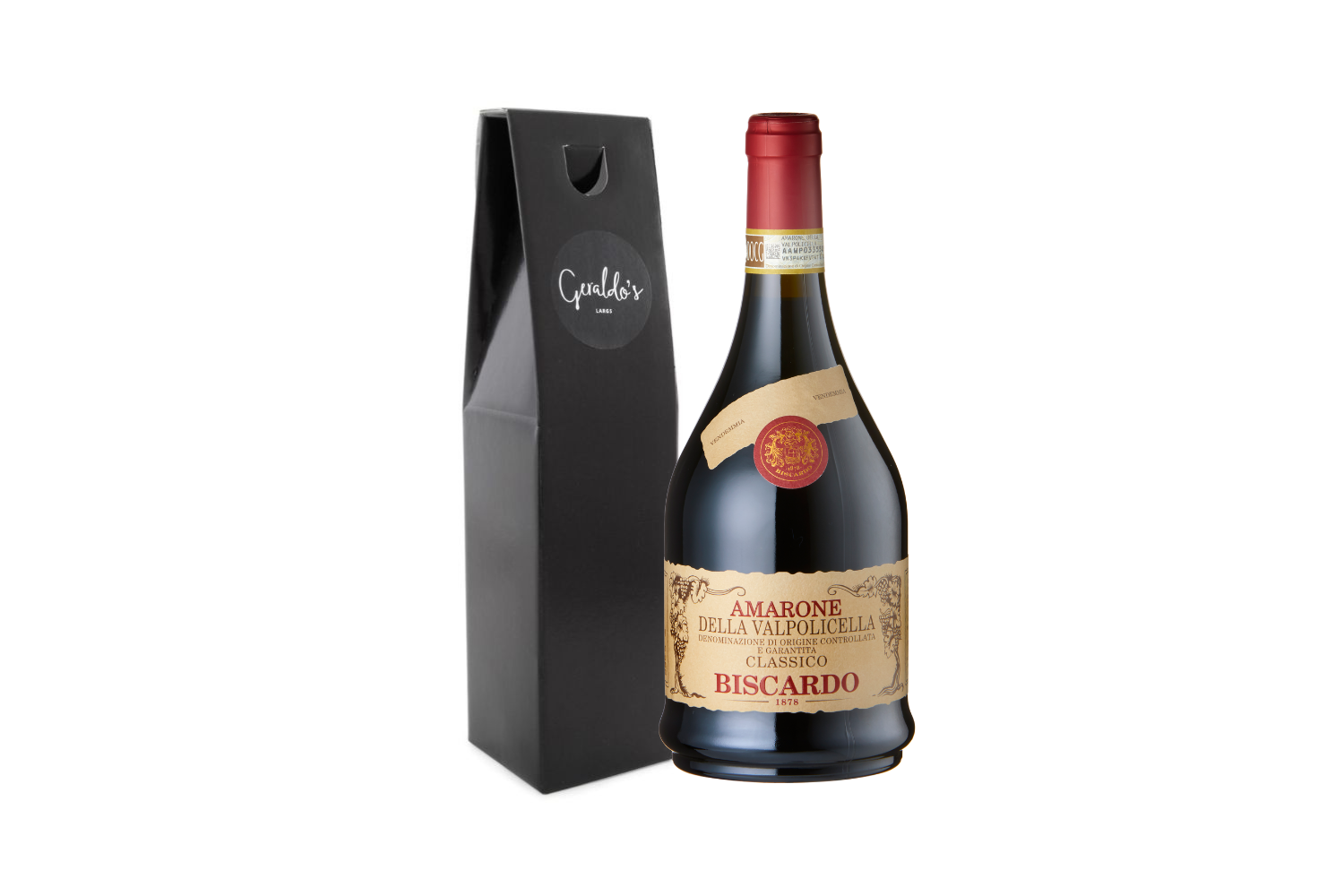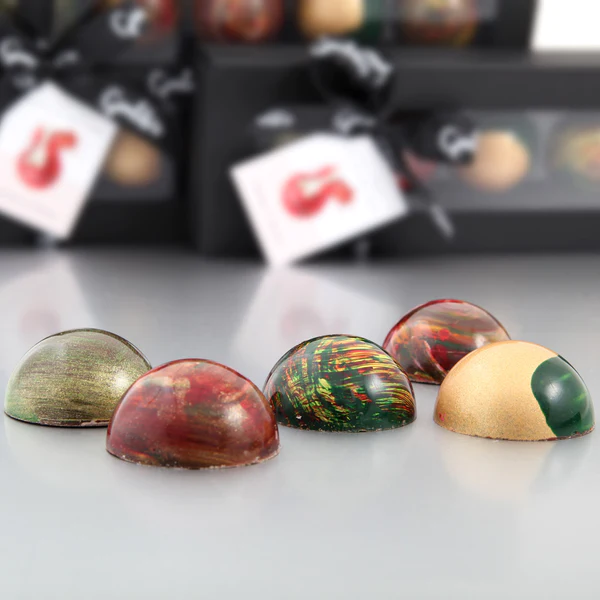Mabis, Biscardo Amarone della Valpolicella Classico, DOCG, Veneto, Italy, 2019 BIN NO 1114
GOLD MEDAL WINNER 32nd GRAND INTERNATIONAL WINE AWARD (Berliner Trophy 2023)
Boasting an intense garnet-red colour and a delightful bouquet, this velvety red wine has a slightly bitter edge, with cherry and bitter almonds.
Perfectly paired with red meat and game.
Vegetarian and vegan.
Blend: Corvina 75%, Corvinon 20%, Rondinella 5%
ABV 15.5%
Producer Profile
The Biscardo Family have been making wine from their base in Soave for over 150 years and are currently led by brothers Maurizio and Martino.
During the course of Maurizio's long and illustrious career, he has consulted for well-known wineries around Italy and in doing so, he came across the vineyards for their Puglian wines. Both the Pugliese and Veneto wines are characterised by an irresistible drinkability, aromatic purity and exceptional value for money.
Viticulture
The vineyards are on the hill of the little towns around Verona at around 150 to 400 metres. The soil of Amarone is generally silt on loam rocks, compact red soil on basalt, and compact red soil on Eocene limestone. Each valley gives different situations, although there is always a high calcareous concentration, with big stones in the first half metre of the ground. The grapes are still hand-picked up and placed in wooden cases, and this is usually done at dawn or late in the evening to avoid the intense heat that the grapes may suffer during the day.
Winemaking
The Amarone is now produced in special drying chambers under controlled conditions. In Amarone, the quality of the grape skin is a primary concern as that component brings the tannins, colour and intensity of flavour to the wine. The process of desiccation not only concentrates the juices within the grape but also increases the skin contact of the grapes. The drying process further metabolizes the acids within the grape and creates a polymerization of the tannins in the skin, which contributes to the overall balance of the finished wine. The length of the drying process is typically 120 days. The most evident consequence of this process is the loss of weight: 35 to 45% for Corvina grapes, 30 to 40% for Molinara and 27 to 40% for Rondinella. Following drying, at the end of January/beginning of February, the grapes are crushed and go through a dry low-temperature fermentation process which can last up to 30/50 days. After fermentation, the wine is then aged initially in stainless steel tanks and successively in small barrels, from 20 to 50 hectoliters.
Oak Ageing
Time: 12 Months
Type: Slavonian Tonneaux
% wine oaked: 40 to 60
% new oak: None
Tasting Notes
Intense garnet-red. With a delightful bouquet, which is intense and persistent with cherry hints. Velvety, slightly bitter, with cherry and bitter almonds.






